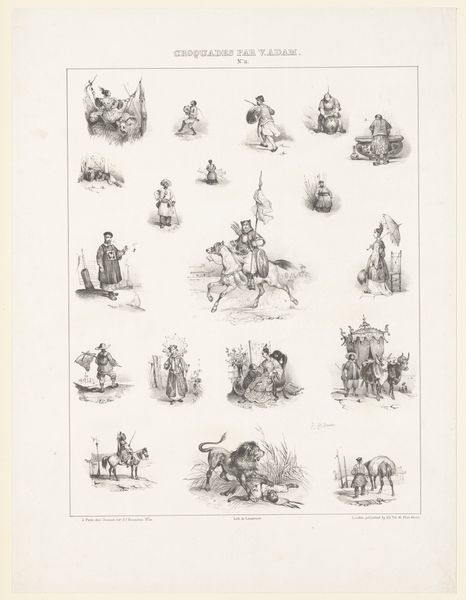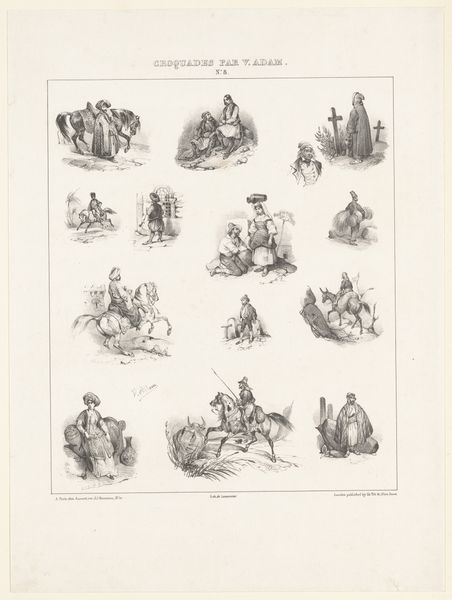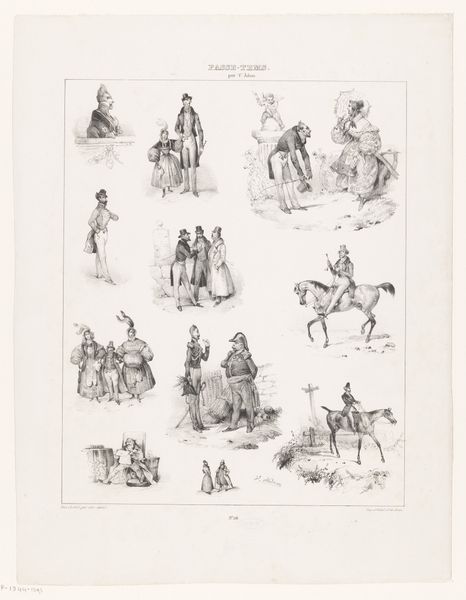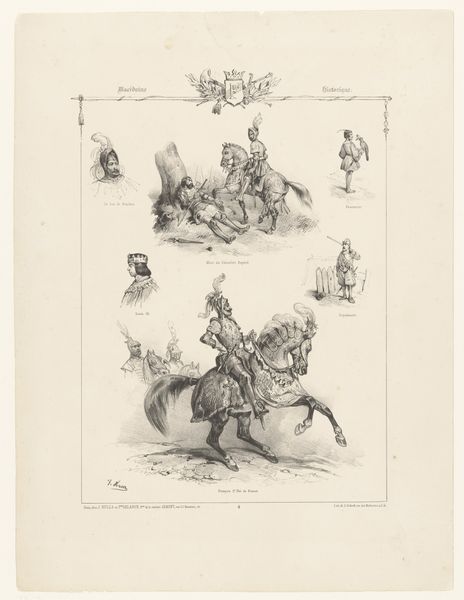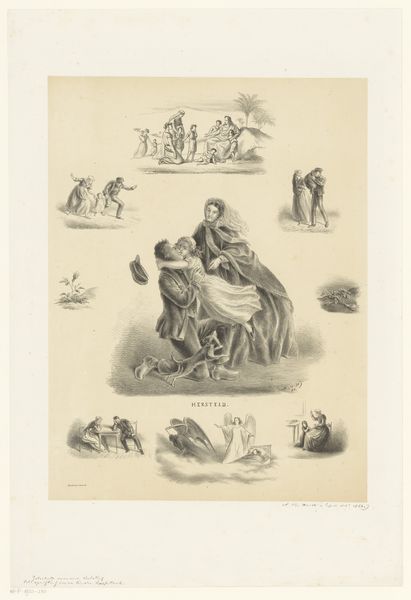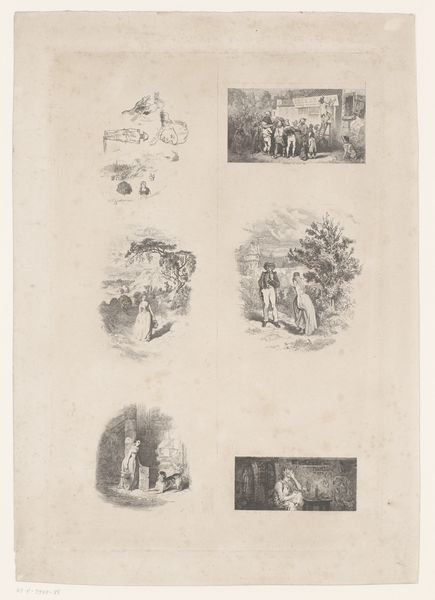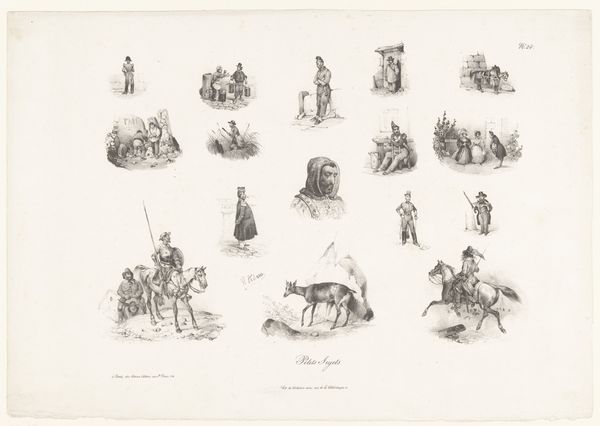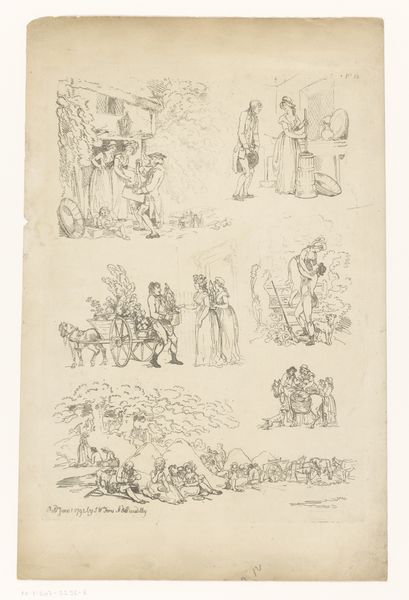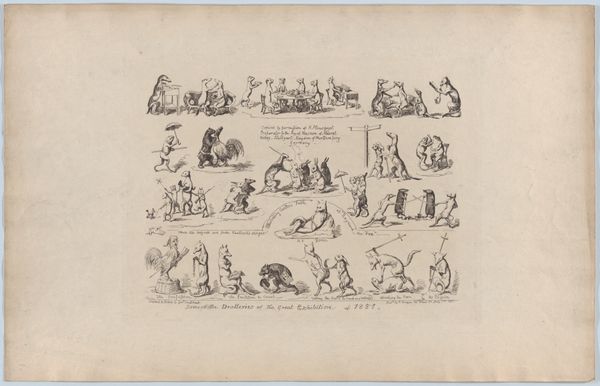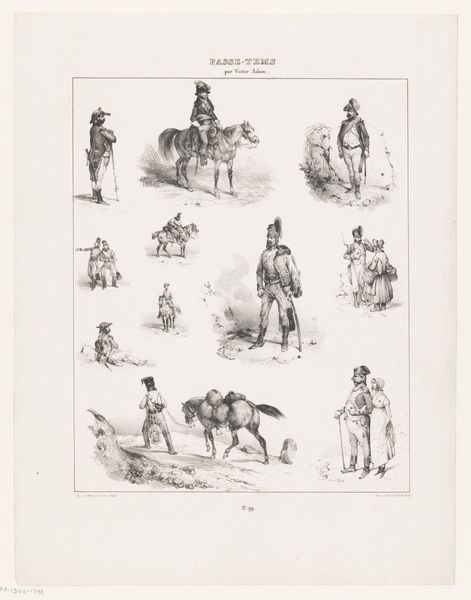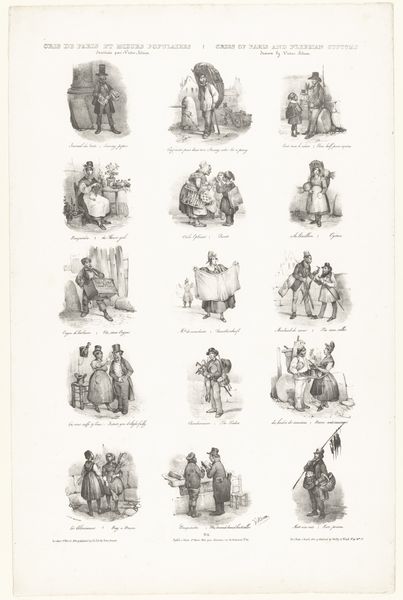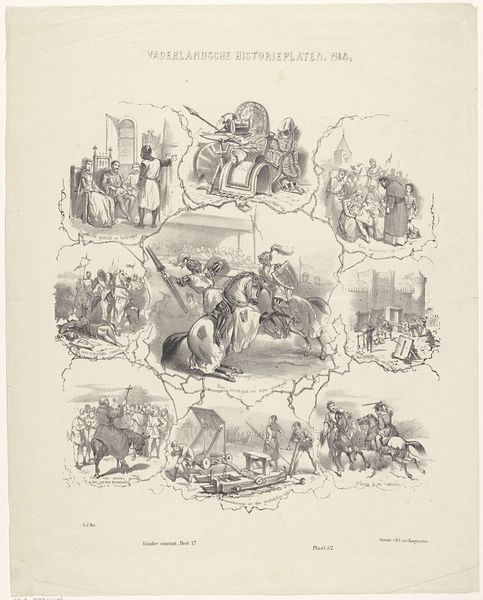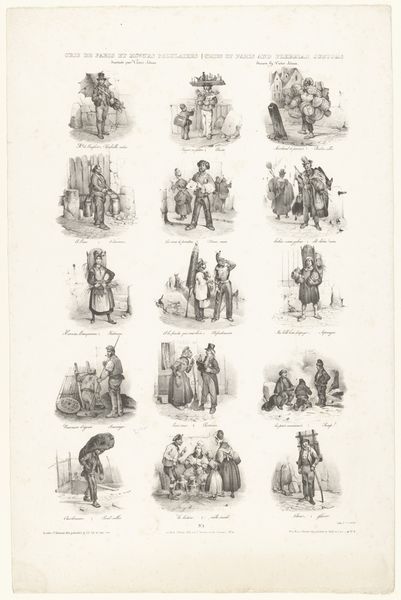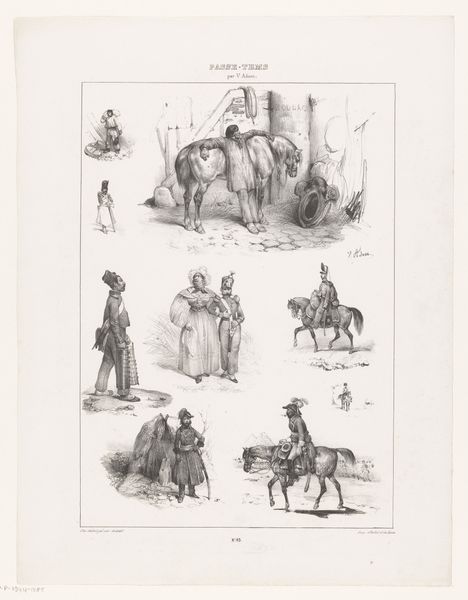
drawing, print, engraving
#
drawing
#
narrative-art
# print
#
landscape
#
figuration
#
romanticism
#
orientalism
#
horse
#
history-painting
#
engraving
Dimensions: height 359 mm, width 272 mm
Copyright: Rijks Museum: Open Domain
This print, made by Victor Adam sometime in the 19th century, shows scenes of Oriental figures and animals rendered in delicate strokes of lithographic ink. Lithography is a printmaking process where an image is drawn on a flat stone or metal plate with a greasy substance, then printed using the repellent forces of grease and water. The material qualities of lithography lend themselves to replicating the subtleties of drawing, as you can see here in the fine lines and tonal variations of the image. The process allowed for relatively quick and inexpensive reproduction of images, making them accessible to a wider audience. In this case, the lithographic process is directly tied to the subject matter, as it facilitated the dissemination of Orientalist imagery and contributed to the construction of stereotypes about non-Western cultures. The print's production and distribution reflect the dynamics of 19th-century colonialism, in which mass production was used to reinforce Western perceptions of the East, and in turn, extend colonial reach. So we can see how even a seemingly simple print can be deeply embedded in broader social and political contexts.
Comments
No comments
Be the first to comment and join the conversation on the ultimate creative platform.
